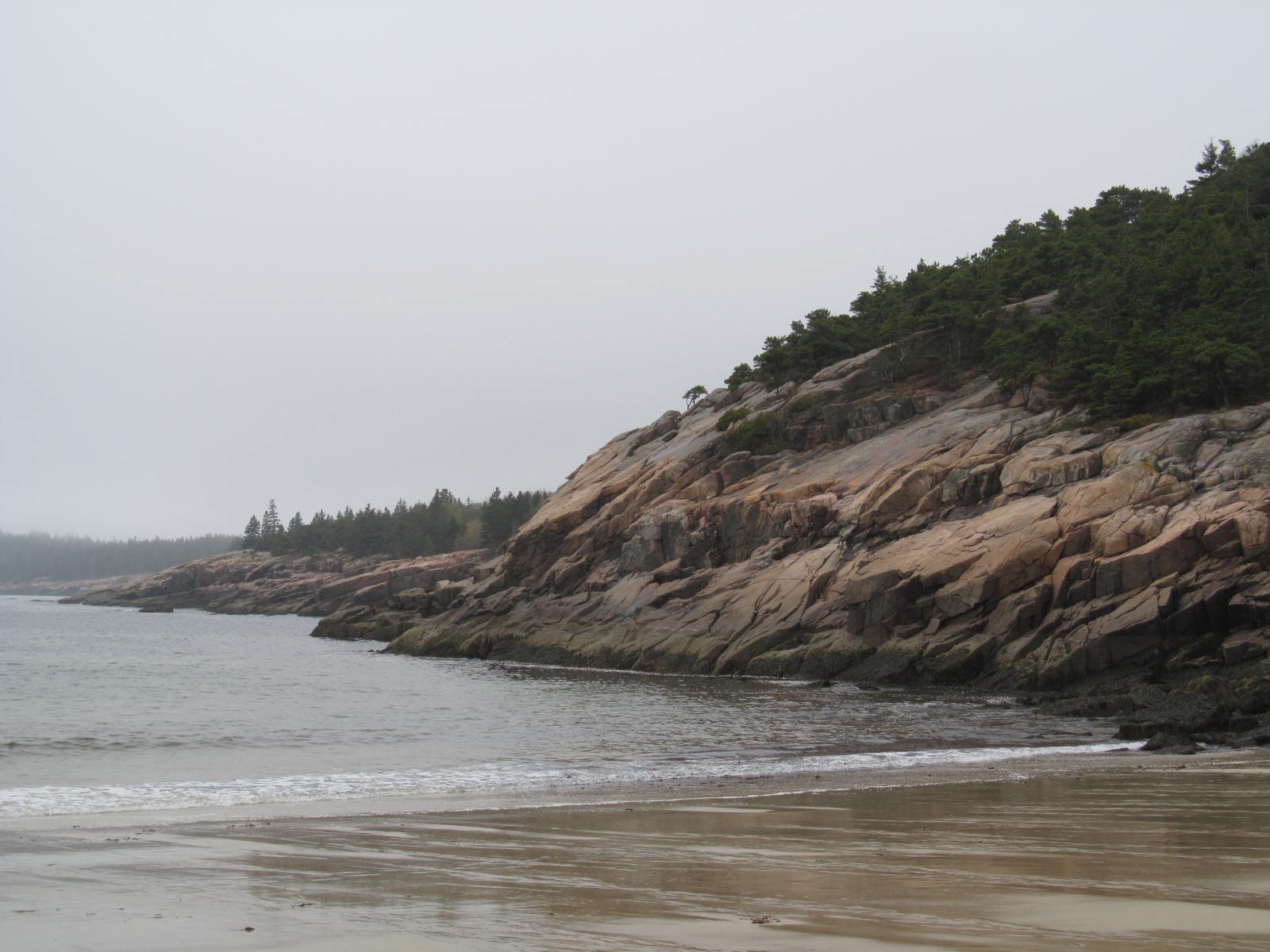Peregrine falcon Acadia National Park trail closures are annual events to protect nesting falcons. These closures affect popular hiking trails from March 1 until late summer. The Jordan Cliffs Trail, Precipice Trail, Valley Cove Trail, and part of the Orange & Black Path are typically closed. Hikers must plan alternative routes and respect closure signs to avoid fines. The closures are part of Acadia’s successful falcon monitoring program, which has helped over 90 chicks fledge in 19 years.
What Are the Specific Trail Closure Dates and Affected Trails?

Acadia National Park implements annual trail closures to protect nesting peregrine falcons. Here’s what you need to know:
- Closure Period: Typically begins on March 1 and continues until further notice
- Reopening: Usually occurs in late July or early August, after chicks have fledged
- Affected Trails:
- Jordan Cliffs Trail
- Precipice Trail
- Valley Cove Trail
- A portion of the Orange & Black Path
Park resource managers carefully monitor the nesting attempts and determine when it’s safe to reopen the trails. The exact reopening date can vary based on the success of nesting efforts and the development of falcon chicks.
How Do These Closures Impact Hiking Accessibility and Trail Conditions?

The peregrine falcon nesting season significantly affects hiking experiences in Acadia National Park:
- Limited Access: Popular trails are off-limits, requiring hikers to plan alternative routes.
- Signage: Clear markers indicate closed areas to prevent disturbance.
- Legal Consequences: Violating closures can result in fines or imprisonment.
- Parking Restrictions: Trailhead parking lots may be closed if repeated violations occur.
These measures are crucial for protecting falcon nests from human disturbance, which could lead to nest abandonment and put chicks at risk of hypothermia, starvation, or predation.
What Is the Acadia Falcon Monitoring Program?
The Acadia Falcon Monitoring Program is a comprehensive effort to protect and study peregrine falcons within the park. Here’s an overview:
| Aspect | Details |
|---|---|
| Primary Objective | Ensure successful nesting and fledging of peregrine falcon chicks |
| Methods | Trail closures, behavior monitoring, nest site observation |
| Personnel | Park staff and volunteers |
| Activities | Observing courtship, monitoring nests, enforcing closures |
| Success Metrics | Number of chicks fledged, breeding pairs established |
In 2023, the program reported significant success:
– Three breeding pairs established nests on Acadia’s cliffs
– Six chicks successfully fledged (two from each pair)
– Over 19 years, more than 90 chicks have fledged from nests on Mount Desert Island
This program plays a vital role in Maine’s overall peregrine falcon recovery efforts.
What Amenities and Facilities Are Available During Nesting Season?
Despite the trail closures, Acadia National Park remains accessible and enjoyable during the falcon nesting season:
- Open Trails: Many hiking trails unaffected by closures remain open for exploration.
- Information Resources:
- Extensive signage at trail heads and junctions
- Up-to-date closure information on the park’s website
- Park officials available for inquiries
- Alternative Activities:
- Scenic drives
- Unaffected hiking trails
- Other recreational opportunities within the park
Visitors are encouraged to respect closure signs and seek out park-approved activities during this critical time for peregrine falcons.
Why Are These Closures Necessary for Peregrine Falcon Conservation?
The trail closures in Acadia National Park play a crucial role in peregrine falcon conservation:
- Protection from Disturbance: Human presence near nesting sites can stress falcons, potentially leading to nest abandonment.
- Successful Breeding: Undisturbed environments increase the chances of successful mating and egg-laying.
- Chick Survival: Minimizing human interference allows parent falcons to care for their young without interruption.
- Population Recovery: These efforts contribute to the ongoing recovery of peregrine falcon populations, which were once endangered.
The success of Acadia’s program demonstrates the positive impact of these conservation measures:
- Before Conservation: Peregrine falcons were absent from Acadia’s cliffs for decades.
- After Conservation: Multiple breeding pairs now nest successfully each year.
How Can Visitors Support Peregrine Falcon Conservation While Enjoying Acadia?
Visitors to Acadia National Park can play an active role in supporting peregrine falcon conservation:
- Respect Closures: Adhere strictly to all trail closure signs and notifications.
- Stay Informed: Check the park’s website or speak with rangers for up-to-date information on closures and falcon activity.
- Choose Alternative Trails: Explore the many other beautiful hiking options within the park.
- Educate Others: Share information about the importance of these closures with fellow visitors.
- Participate in Programs: Attend ranger-led talks or volunteer for conservation efforts if available.
- Use Binoculars: Observe falcons from a safe distance using binoculars or spotting scopes.
- Report Violations: Alert park staff if you witness anyone ignoring closure signs.
By following these guidelines, visitors can enjoy the park while ensuring the continued success of peregrine falcon conservation efforts.
What Are the Long-Term Benefits of Acadia’s Peregrine Falcon Protection Efforts?
Acadia National Park’s commitment to peregrine falcon protection yields significant long-term benefits:
- Species Recovery: Contributes to the broader recovery of peregrine falcons across North America.
- Ecosystem Health: Supports a balanced ecosystem by maintaining predator populations.
- Scientific Research: Provides valuable data for ongoing studies on falcon behavior and conservation.
- Public Education: Raises awareness about wildlife conservation and the impact of human activities.
- Tourism: Attracts bird enthusiasts and nature lovers, supporting local economies.
- Conservation Model: Serves as an example for other parks and protected areas.
The success in Acadia demonstrates how targeted conservation efforts can have far-reaching positive impacts on wildlife and ecosystems.
When Can Visitors Expect Trail Reopenings and How Are These Decisions Made?
The decision to reopen trails after peregrine falcon nesting season involves careful consideration:
- Monitoring Process:
- Park biologists observe falcon nesting sites regularly
-
They track the progress of chicks from hatching to fledging
-
Reopening Criteria:
- Successful fledging of chicks
-
Confirmation that young falcons are independent and no longer reliant on the nesting site
-
Typical Timeline:
- Trails usually reopen in late July or early August
-
Exact dates vary based on the specific progress of each nesting pair
-
Announcement Process:
- Park officials update the Acadia National Park website
- Press releases are issued to local media
-
Signs at trailheads are updated to indicate reopening
-
Gradual Reopening:
- Some trails may open earlier than others, depending on individual nest locations and progress
Visitors planning late summer trips to Acadia should check for the most current information on trail status to enjoy the reopened areas responsibly.
By implementing these careful measures, Acadia National Park balances the needs of wildlife conservation with public access, ensuring that both peregrine falcons and park visitors can thrive in this beautiful natural setting.
References:
- https://www.nps.gov/acad/learn/news/temporary-closures-for-peregrine-falcon-nesting-in-acadia-national-park.htm
- https://www.bangordailynews.com/2024/08/02/hancock/acadia-national-park-peregrine-falcon-nesting-violators/
- https://www.nps.gov/acad/learn/news/20240301.htm
